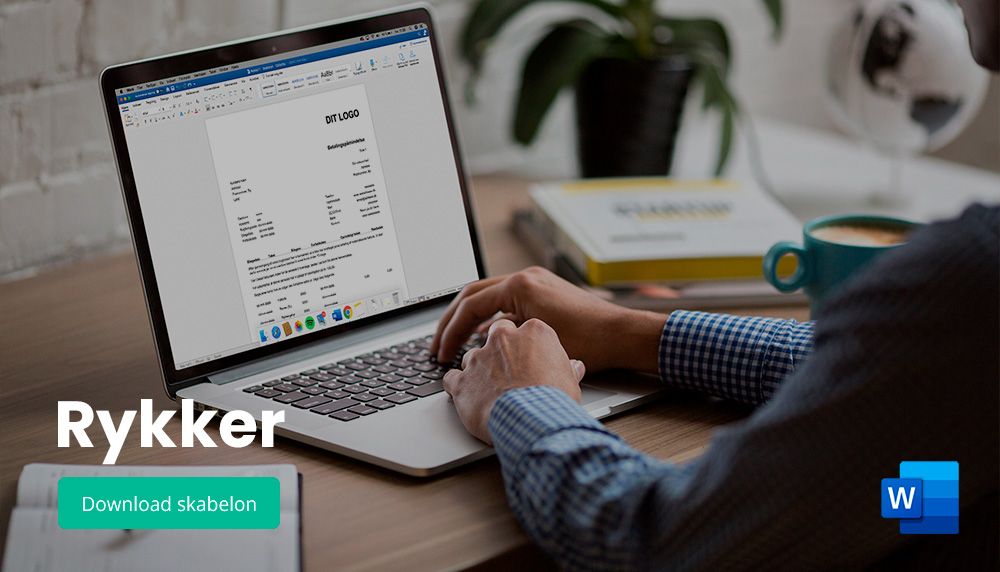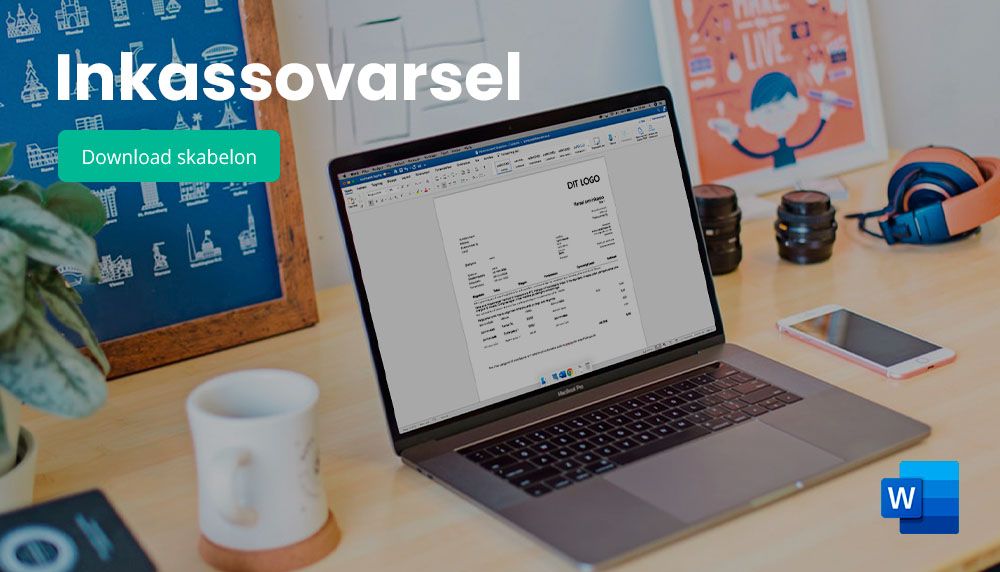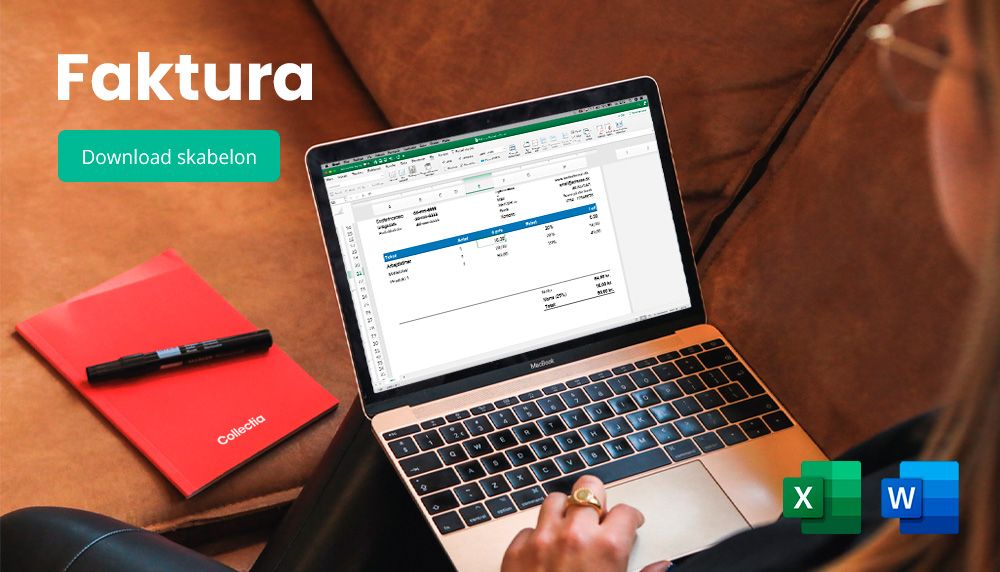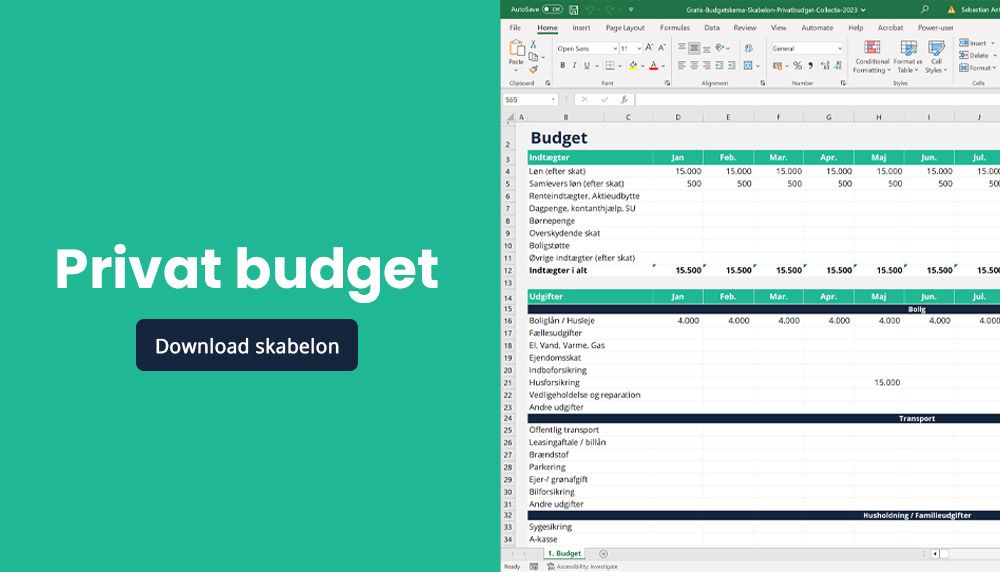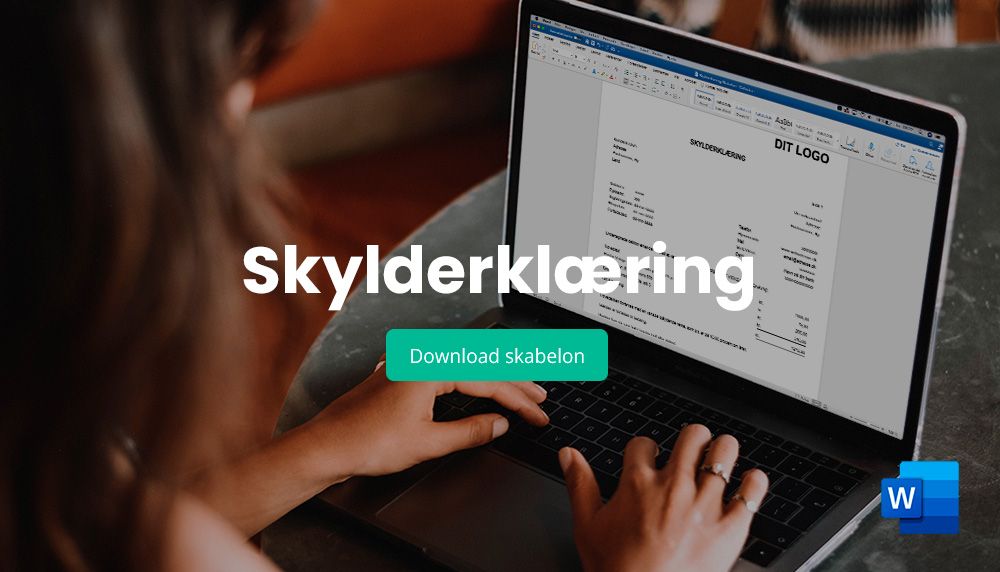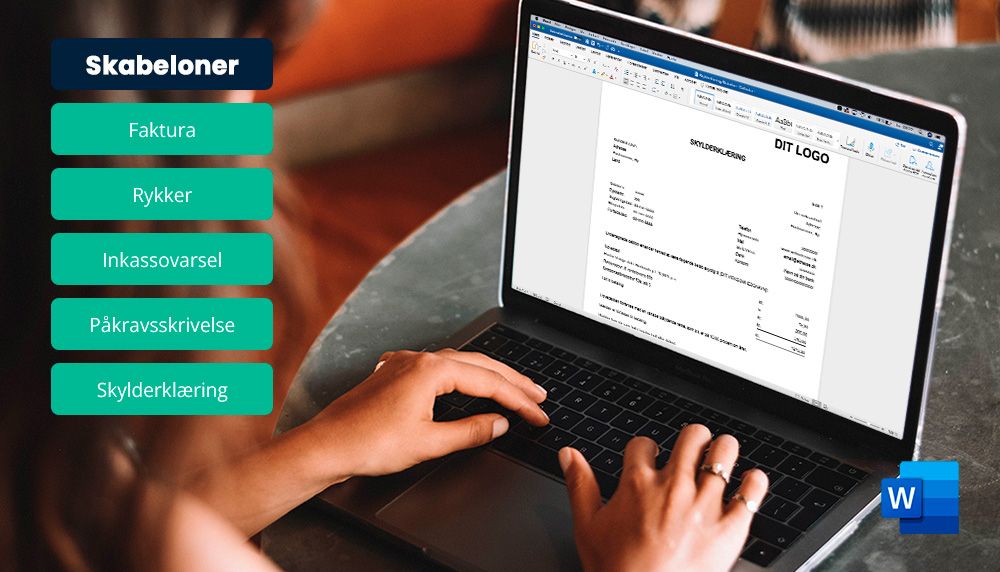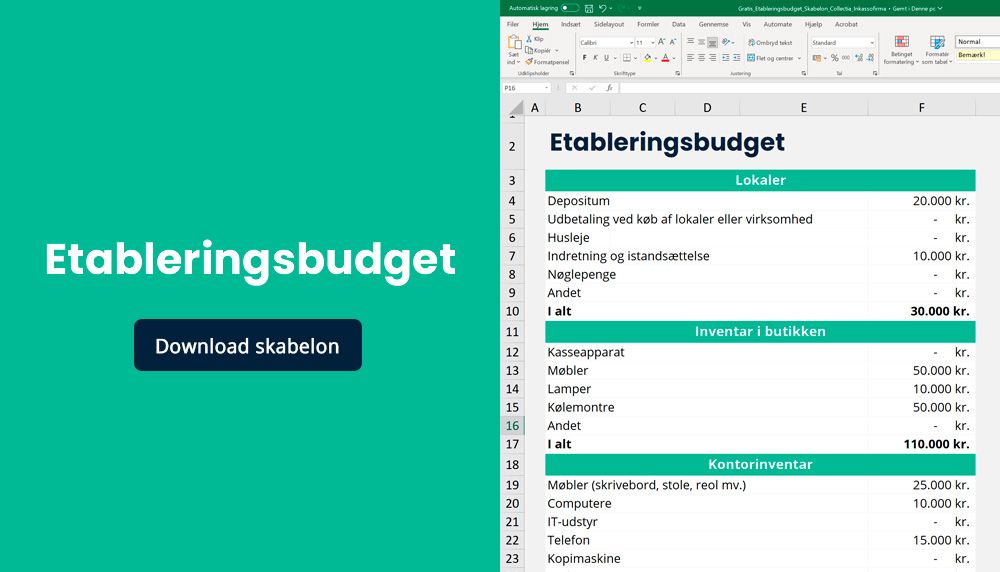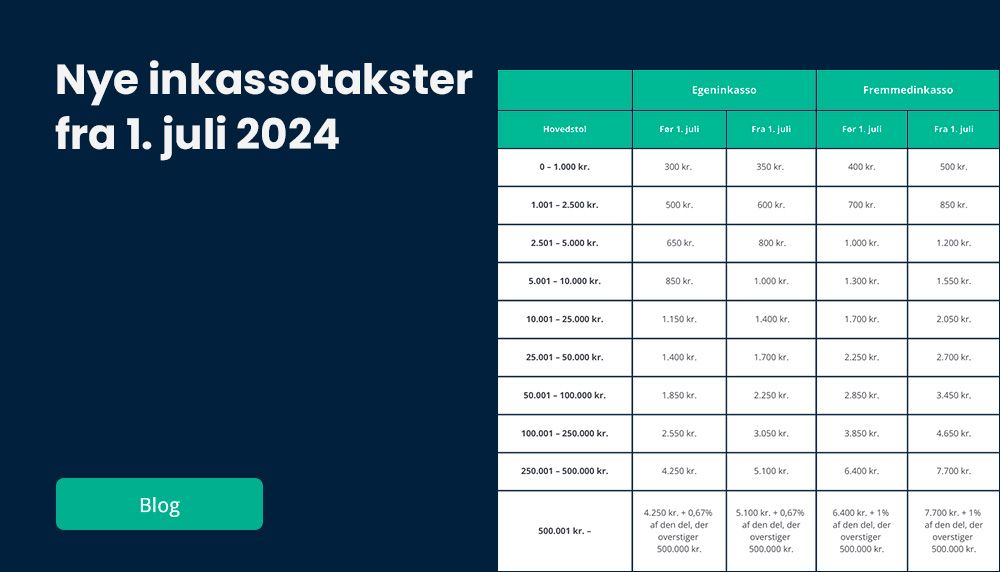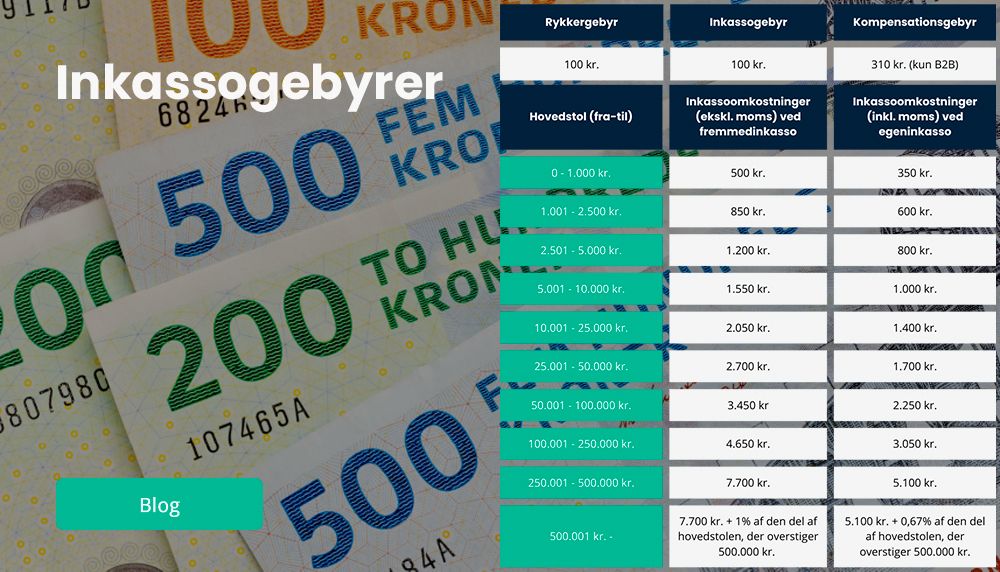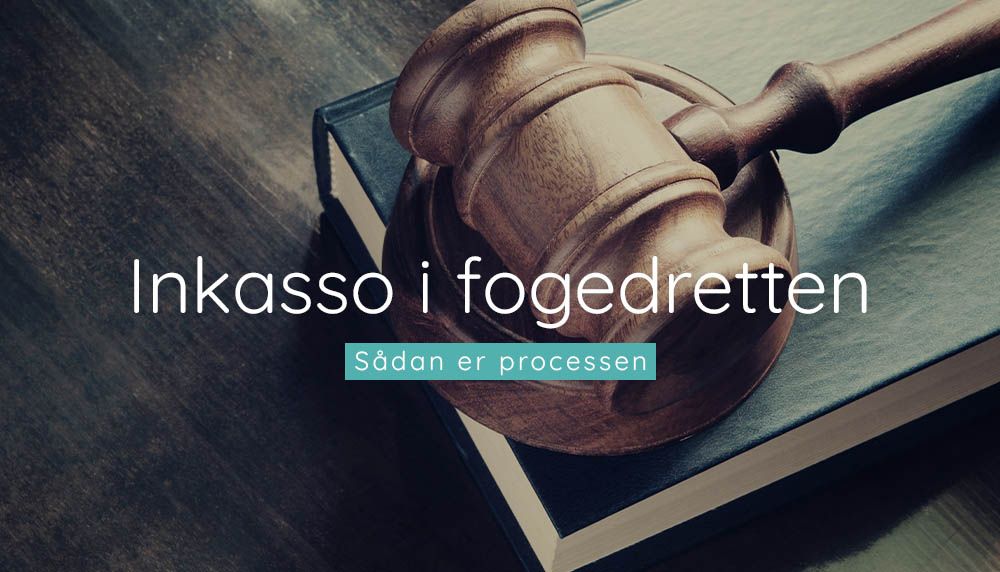
Debt collection in the enforcement court
Every day, we (Collectia) handle debt collection for thousands of private companies, banks, lenders, energy companies, telecom companies, municipalities and utilities - small and large - all with the challenge that their customers, in whole or in part, have not paid for their services.
Collectia consists of over 150 employees, all working towards a common goal - to help our customers with their challenge; non-payments.
As an authorized debt collection company by the National Police, we have a wide range of powers and opportunities to do everything possible within the law to help our clients collect their unpaid invoices in a professional and efficient manner.
Debt collection with Collectia
At Collectia, we do everything we can to get your money back - it's what we do for a living. No two debtors are the same, just as no two monetary claims are the same - some unpaid invoices can be resolved through letters, collection notices and dialog with the debtor - while other debt collection cases unfortunately have to go to court to find a solution.
Basically, we do everything in our power to resolve a case outside the enforcement court, in a so-called out-of-court process. An out-of-court process consists of, for example, sending a debt collection notice(download a free debt collection notice template), reminder letters, phone calls, imposition of interest, reminders and fees - some processes are short, while other debt collection cases unfortunately cannot (or may not) be resolved in an out-of-court process.
In such cases, legal action is necessary, for example through the civil courts or the bailiffs' court. Fortunately, however, most cases are resolved in the court of enforcement - the end result being full repayment of the amount, an installment plan or similar.
Which debt collection cases have to go to the enforcement court?
As mentioned, we do everything we can to resolve your case in the best possible way, as quickly as possible and with the least cost to all parties.
Enforcement proceedings in the enforcement court are generally associated with extra waiting time and extra expenses in the form of legal costs - expenses that you as a creditor have to pay, but which the debtor has to pay. Therefore, the starting point is always that you, your debt collection company or your lawyer should try to get your money back without the help of the enforcement court. However, if it is not possible to enter into a dialog with the debtor, we often recommend the enforcement court.
Unfortunately, some debt collection cases cannot be resolved without the help of the bailiffs' court - which is why we have hundreds of debt collection cases to deal with every day.
In order for the enforcement court to help with the processing of your case, there are several criteria that your case must meet.
- There must be a foundation in the case. This could be a signed statement of debt, loan document, judgment in the case, etc.
The debtor does not (and is not expected to) object to your claim (the amount or the work performed). - If there is no foundation in the case, your case can be run as a so-called simplified debt collection process in the enforcement court. The simplified debt collection process is started on the basis of a payment demand.
The creditor himself, the creditor's debt collection company or the creditor's (debt collection) lawyer can fill in a payment order and then send it to the enforcement court. It is up to the creditor to decide whether he represents himself, his debt collection agency or his lawyer in the enforcement court.
In the bailiff's court
Once the order for payment has been received by the enforcement court and the debtor has no objections to the claim, the order for payment has the same binding effect as a judgment, which means that the debtor is ordered to pay the claim.
Upon receipt of the payment claim, the debtor (or his representative) is summoned to the enforcement court together with the creditor or the creditor's debt collection agency or (debt collection) lawyer.
In the enforcement court, the debtor can ask for a possible repayment plan, deferment of payment or similar.
After the enforcement court
The purpose of the enforcement court is to reach a binding agreement on a possible installment plan or similar solution. In practice, the debtor rarely brings the full amount to the enforcement court.
The limitation period for the claim has now been extended to 10 years, instead of the 3 years that normally applies to e.g. invoice claims. In other words, you now have a claim that only becomes time-barred after 10 years - not 3 years. This interruption of the statute of limitations can have a significant impact on whether or not you get your money back. More time can be set aside to recover the debt, while the debtor's ability to pay may also change over time.
Who can send a case to the enforcement court?
As a general rule, anyone can file a case in the enforcement court. However, as mentioned above, the case must meet and comply with the requirements laid down by law.
However, you do not have to send the payment order yourself. You can leave the work to your lawyer or debt collection agency.
The payment claim can be found online on the bailiff court's website (www.domstol.dk) - but it is important that it is filled in 100% correctly, otherwise you risk it being rejected - and unnecessary time is wasted.
If you choose to send the payment claim yourself, it will generally also be you who has to appear in the bailiff court together with the debtor.
If you have limited experience with the bailiff court and dealing with payment orders, we recommend that you contact a debt collection agency or debt collection lawyer.
